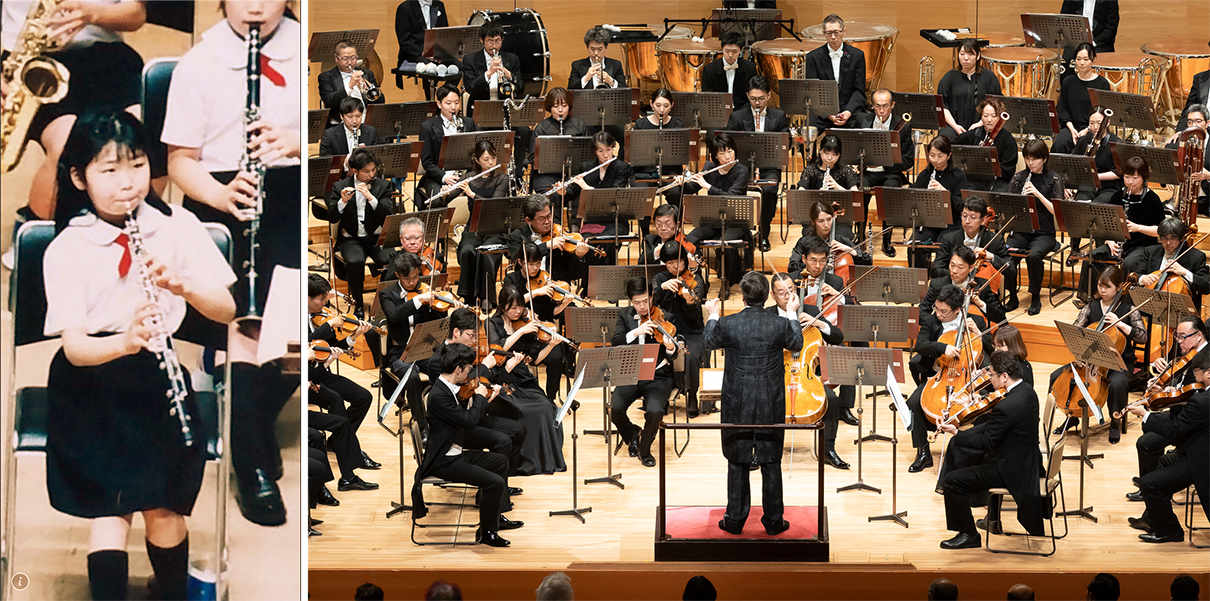To Live and Embrace Life with Music
ー Kanami Araki, Oboist, Winner of 1st Prize [Ohga Award] at the 11th International Oboe Competition of Japan 2015 in Karuizawa
with Masaru Yokoyama (Composer, representative works such as "Your Lie in April")


"Sound recording is like adding color to a score, and the experience of creating something together with the composer is incredibly rewarding."
What do you do to deepen your understanding of the music piece, and does this differ between classical music and animation music?
Araki: Classical music scores contain more technical information, such as the dynamics and tone of notes. There are also past performances that we can use as references, and some have left behind biographies of sorts, so in the case of classical music, we can deepen our understanding by using this information. Classical music has a long-standing tradition, with pieces that have been passed down orally for hundreds of years. Today, we can still listen to them performed by wonderful contemporary musicians and conductors collaborating with orchestras, which serves as a great reference. The historical background of the age when a particular piece of music was composed is also important. When imagining a time in history before I was born, for example if a piece was composed during a world war, I try to channel the anxiety and the emotion of sorrow we feel today into the music. This allows me to produce a more harsh, strained sound. I then consider how to use those tones within the piece, aligning them with other elements like style, phrases, and harmony.
On the other hand, when working on music pieces composed by an active composer who has worked on many forms of project including animated films, the process simply involves playing the notes using my own sounds. This means that I can experiment with classical articulation methods and try out different sounds that match the style of the music. We will have conversations with the composer, who will tell us what the scene is about. For example, if it is an emotional scene for a character, we will discuss this and create deeper sounds to reflect those emotions. The sound recording is like adding color to a score, and the experience of creating something together with the composer is incredibly rewarding. Classical music performers such as myself usually perform music written by composers who have already passed away, so working with active composers is a rare opportunity that I cherish.

"Before being asked for a specific type of music, I already know the music I want to create. I like to add on new layers to the original request."
As a composer, how do you establish the overall atmosphere of a piece and decide on the instrument assignments?
Yokoyama: I find joy in thinking about the musical soundscape, and the image the music is portraying. People often ask me what kind of request I received to write a particular piece of music, but my approach is a little unique. Before being asked for a specific type of music, I already know the music I want to create. I like to add new layers on to what is being requested.
As for the overall feel of the music, I think it's important to first read the story thoroughly and then try and find what I have inside of me that would work as a contribution. The art of manga comic is a combination of different elements such as script writing and drawings. I love working on film music scores, and I find films, anime and drama absolutely fascinating because it is a form of art where acting, audio visuals, music and sound effects all come together as one. I see it as a comprehensive art where every component is intertwined with each other to create something that cannot be achieved by one person alone. When I watch movies or anime, I always imagine what kind of music I would create if I were composing music for them. I think of the different combinations of instruments, musical expressions, history and locations that might work for a certain project or imagine how it would be interesting to have people from other countries record and mix the music. That’s the kind of mindset I work with when I write music.


"My club mentor told me, ‘I always thought you should play the oboe.’ Later, I found out that this was based on observing my daily school life, drawings, and calligraphy."
How did you both get started in music?
Yokoyama: I have been playing the piano ever since I can remember. I also started using computers and worked on programming in the early years of primary school. Computers emit beeping sounds to signal errors, but if you programmed it, you can assign musical notes to those error sounds. I found a book in the school library about composing music using these sounds and that's how I first became interested in music and computers.
From then on, when I was in junior high school, Tetsuya Komuro was just getting popular and I remember buying a CD by his band, TRF. I had a strong interest in electronic sounds stemming from my experience as a child and got more and more into writing songs on the synthesizer.

Araki: Ever since I was small, I’ve always enjoyed being exposed to music in general, and not just classical music. At around the age of one I was learning to do eurhythmics, dance and musicals. Then, there was a brass band at my primary school, so I quite naturally joined the club. That was my first encounter with the oboe.
About a year after I joined the club, my club mentor told me "I always thought you should play the oboe." Later, I found out that this was based on observing my daily school life, drawings, and calligraphy. Actually, I had been playing the clarinet until then, but those words became the catalyst for me to switch to an oboist in my third grade.

Right: Araki’s performance at a concert with the © Yomiuri Nippon Symphony Orchestra.
Ms. Araki, can you tell us why you decided to compete in the International Oboe Competition of Japan?
What new opportunities have you gained as a result of winning the prize?
Araki: The International Oboe Competition of Japan is held once every three years, and I was a first-year university student when I went to Karuizawa(1) to watch the competition. The level of the contenders was so intense, it came as quite a shock to me and that was when I decided to apply for the next competition. That motivated me to practice harder, so I consider that competition to be an important turning point for me because it changed my life long before I was actually taking part. Competing together in a contest in the beautiful environment of Karuizawa was also an invaluable experience. In a typical competition, it's normal to travel to the venue from your own home, making it difficult to interact with other competitors. However, in the International Oboe Competition of Japan, participants from around the world stay in the same facility, sharing daily activities like practice and meals while preparing for the competition which was a very stimulating, exciting experience for me.
Winning the award has had a significant impact on my life. I now have more opportunities to connect with new concerts and musicians, as well as new offers for recitals. The range of music I perform expanded rapidly over a short period of time, from oboe pieces to orchestral, chamber music, contemporary works, and even music for anime and drama soundtracks. While I do not feel I have changed as a person, the sudden expansion of the world that surrounds me has made me feel uneasy at times. However, facing various genres of music in such a short time helped build my strength, and, most importantly, the many wonderful connections I made has continued to flourish to this day. I feel it has been an incredibly valuable experience.
(1)The competition venue changed to Tokyo in 2018

"For many, 'Your Lie in April' is a touching story that would bring tears to your eyes, but it was very much a realistic story for me."
Mr. Yokoyama, you were in charge of the film music score for "Your Lie in April". What was your interpretation of the original story?
Yokoyama: I was deeply moved by the original work of "Your Lie in April". When I was given the chance to work on the musical pieces for this animation, I remember feeling a strong sense of pride, thinking that if I couldn't create the best music that I have in me for such an incredible work, then I might as well give up being a musician all together. It also felt like many of the other creators involved were similarly inspired by the original work and were able to draw out more than they thought they were capable of. It was truly an honor to be a contributing factor for this project. I think that for many, this is a touching story that would bring tears to your eyes, but it was very much a realistic story for me. I often suffered from the burden of endless piano practices, which held me from going outside to play with friends. One day, it felt as though I could no longer hear any music… I lost all sense of taste and smell, and I became soulless. It was almost as if I’d turned into a machine, because playing the piano had become a routine. I vividly remember a Kyogen (form of traditional Japanese comic theatre) actor who once said “I am a Kyogen robot. I have Kyogen programmed into me.” I remember thinking that I shared the same feeling.
Araki: I thought it was very realistic. The struggles of how the characters approach music are well portrayed. Playing note for note as written on the music will make you sound like a machine, but putting too much of your own emotions in your performances may be regarded as distorting classical music. These struggles can lead you to falling into a slump or being overcome with fear, which, surprisingly, are not topics that musicians often share openly with each other. We all somehow believe that only you can overcome your own struggles. I was surprised that I could share that feeling with the people who watched the anime.
(To Yokoyama) You arranged some classical music for the show, didn’t you?
Yokoyama: Yes, that's right.
Araki: I saw that you arranged a piece that was originally intended for piano only, into a violin duet. In some scenes, the gradual-distorting sound of the piano reflected the character’s emotions, while in other scenes, the emotional breakdown was conveyed through changes in the combination of instruments without actually altering the music itself. It was amazing how the sensory experiences were fully expressed through the music.

"Create as naturally as you would breathe." Yokoyama
"Don’t focus solely on honing your technical skills." Araki
What would you say to young people starting out?
Yokoyama: I would say, create as naturally as you would breathe. If the process of creation does not come naturally to you, and if it is something special, then you are probably not cut out to be a creator. That’s my answer. Everybody is capable of creating something, and it’s nothing special or extraordinary. Everyone has their own abilities, and everyone has something unique to offer. If creation is something that you can devote your life to, then it’s not a special act or anything extraordinary - it becomes a part of your daily life, as natural as breathing. In other words, maybe creation is something you need to continue doing until it no longer feels like you are doing something special. You are either living, sleeping, eating or creating. You just keep going. Talent is something that you have to make it happen to yourself. I believe there is no such thing as talent. If it exists at all, talent is something that is intentionally created.
Araki: I totally agree with you. I have seen a few people with something truly special and extraordinary, but I believe that there is a lot of potential within myself as well. To discover that potential, you have to try various things and put in a lot of effort. Technique is just one form of expression, so don’t focus solely on honing your technical skills.
In my case, I have done some unconventional practice to bring expression and technique closer together. For example, I have played lying down to see if can capture a different sensation. When I am focusing too much on working with the instrument, I sometimes feel like I am being manipulated by the instrument. So, I deliberately make the instrument listen to me and adjust to my movements. Instead of playing seriously all the time, you should play around a little. Act as if you were an actor on stage, do a little jig – experiment a little while you are young. Please don’t get trapped inside of your instrument. Don’t just follow the rules or stick to the usual methods. Be open to experiments and be creative with your practices.
Classical music has a long history and is a field that has involved a vast number of people, but in fact I see it as a very open genre. I hope to collaborate with different elements to broaden my own horizons.
"Music allows me to feel sensations that I would never experience in everyday activities."
What is the ‘voice’ that drives you to create?
Yokoyama: Like I said earlier, to me, creation is like breathing. Creation comes to me naturally, and if I don't create, I feel suffocated. Expressing something opens gates to various opportunities and allows me to meet different people. It also allows me to travel to places. I find all encounters very interesting, including the conversation we had today.
Araki: In my case, creation means exploring what kind of sounds I can produce within the confinements of the staves. I find joy in searching for freedom within a limited space, and there are moments when music allows me to feel sensations that I would never experience in everyday activities. It’s truly difficult to describe these feeling – I suppose I wouldn’t be here making music if I could easily put it into words. It is a feeling you can only achieve by having control over the music, and there are rare, magical moments when you feel completely liberated from your surroundings. It’s like being disconnected from reality. I am forever in search for that unknown sensation, but as you can imagine, it doesn’t happen often. I feel like I am using the process of making music to dig down deep to hit that golden moment.



Kanami Araki
Araki graduated at the top of her class from Tokyo University of the Arts, and later completed her master’s degree at the same institution. From 2015 until 2023, she served as the principal oboist of the Tokyo Symphony Orchestra. She is currently the principal oboist of the Yomiuri Nippon Symphony Orchestra. Notably, she was the first Japanese and the first Asian to win First Prize [Ohga Award] and the Mayor of Karuizawa Award (Audience Award) at the 11th International Oboe Competition of Japan 2015 in Karuizawa, among numerous other competition accolades. She is also active in various fields, including solo performances, chamber music, contemporary music, and soundtrack music.

Masaru Yokoyama
Yokoyama is a Japanese composer and music arranger. He works on music for anime, dramas, and films, and composes songs for various musical artists. His lifelong work involves recording around the world and building sounds using self-produced sampling materials. Constantly exploring and blending orchestral and electronic music, he is always in search of his unique musical expression.


